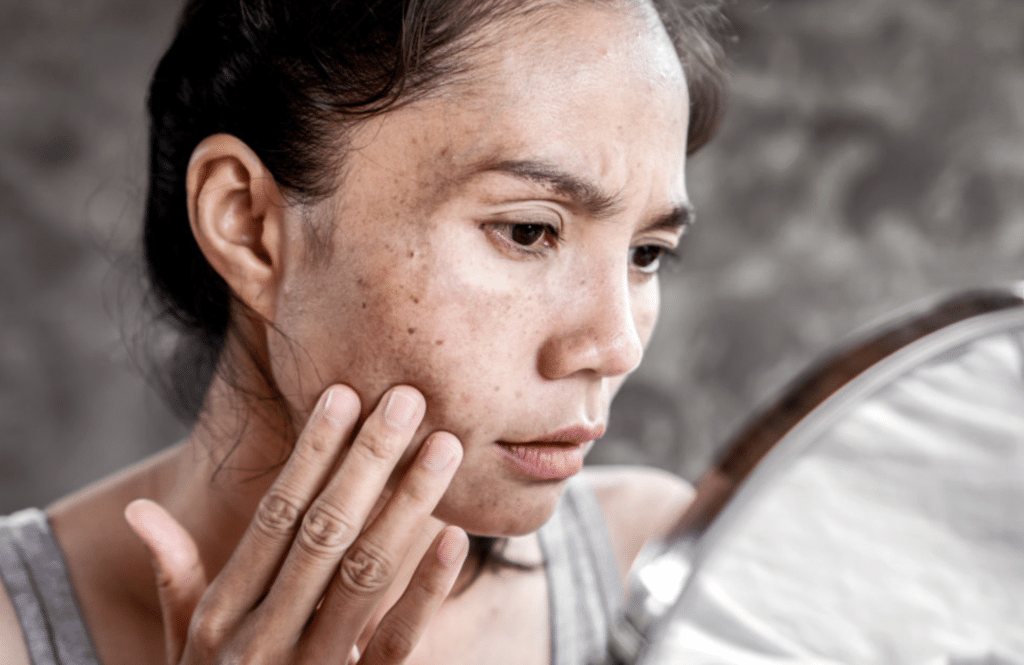Skin discoloration can be a frustrating issue. You may notice patches of skin that are darker or lighter than the surrounding area, or your skin may have an overall uneven tone. While some of it is simply due to genetics or aging, other causes could be medical conditions or certain medications. If you’re concerned about it, don’t hesitate to talk to your doctor. In the meantime, read on to learn more about the different types and what you can do about them.
What is skin discoloration, and what causes it?
It is a condition that causes patches of skin to vary in color from the surrounding area. There are many types, including freckles, age spots, and melasma. Sun exposure accelerates skin aging, leading to wrinkles and dark spots. At the same time, overexposure to UV rays can cause damage to melanin in the skin producing areas of lighter pigmentation. Medication side effects such as oral contraceptives and antibiotics can also increase the risk of discolored skin patches.
Certain genetic causes also exist, leading to skin discoloration. Although many forms are harmless, if you notice any changes in your complexion over time, it’s important to seek medical advice for potential treatments.
How can you treat skin discoloration at home?
There are products for skin discoloration that can help even out skin tone and promote a healthy complexion. Aloe vera gel is known for its amazing healing properties when applied directly to the skin, which can lighten discolorations. Other natural ingredients such as lemon juice, honey, turmeric, tomato juice, and white vinegar may work to reduce darker patches of skin caused by sun damage or hyperpigmentation.
Vitamin C and Vitamin E can give your complexion an overall boost. Always test a small skin patch with any new ingredient before proceeding with a full application to avoid any possible irritation or inflammation. With consistent care, you should notice gradual improvements in your skin tone over time.
What are the best products to use for treating skin discoloration?
Many people have great success with retinoid creams and gels, as these products are known to improve the appearance of discolored areas. Another treatment to consider is products containing hydroquinone. These products can help improve the appearance of dark spots, and you should only use them after consulting a dermatologist. Vitamin C serums and sunscreens with natural ingredients can also help lighten discolorations caused by sun exposure or aging. With so many options available, there’s sure to be something that works for everyone – so don’t forget to do your research and make informed decisions when selecting the best product for treating skin discoloration!
How can you prevent skin discoloration in the future?
One of the best strategies to prevent skin discoloration in the future is sun protection. Wearing protective clothing, using sunscreen with an appropriate SPF, and avoiding direct sunlight can help keep your skin safe from premature discoloration. Additionally, you should take special care when exercising outdoors and avoid intense physical activities during peak sunlight.
Furthermore, staying hydrated by drinking plenty of water and eating healthy foods rich in vitamins and minerals can help nourish your skin for a more even tone over time. Taking these steps will be beneficial to keep your skin looking vibrant and healthy now and into the future.
Skin discoloration is a common skin problem with many different etiologies. Fortunately, there are several ways to treat it at home using over-the-counter products. The best way to prevent skin discoloration in the future is to use sunscreen and avoid sun exposure. Please see your dermatologist if you have any questions about treating or preventing skin discoloration.
Angela Spearman is a journalist at EzineMark who enjoys writing about the latest trending technology and business news.
